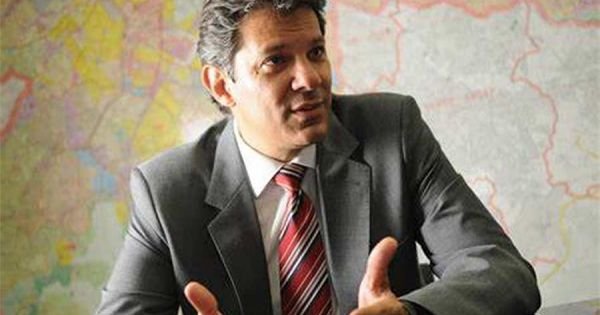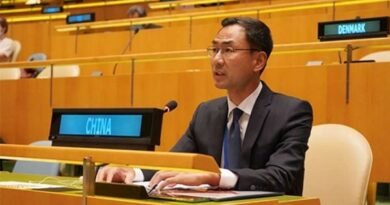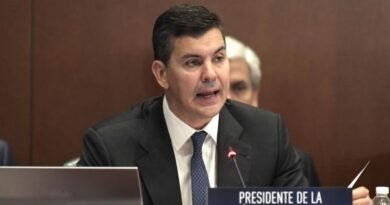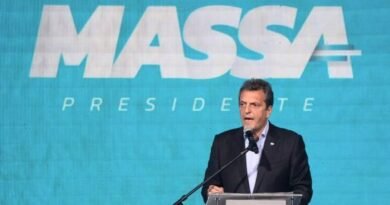Mercosur’s future at stake in Argentina’s elections, Brazilian minister says
[ad_1]
Mercosur’s future at stake in Argentina’s elections, Brazilian minister says
I don’t know what will become of Mercosur if the agreement isn’t closed and we have an ‘exotic’ election result in Argentina, Haddad said
Brazilian Finance Minister Fernando Haddad said in New York that he believed the future of Mercosur hinged on the outcome of this year’s presidential elections in Argentina, Agencia Brasil reported. He also denounced France’s attempt to delay the Mercosur-EU trade agreement from becoming effective.
A possible attempt by France to delay the closing of the new version of the agreement between Mercosur and the European Union (EU) could have tragic consequences, Finance Minister Fernando Haddad said Monday. In his view, the agreement needs to be closed by December because the survival of the South American bloc depends on the outcome of the elections in Argentina.
President Lula is insisting with Europe that we close the agreement this year. I don’t know what will become of Mercosur if the agreement isn’t closed and we have an ‘exotic’ election result in Argentina. A country like France has to pay attention to the consequences of a delay, said Haddad during a panel on The Brazilian Economy on the Road to Ecological Transformation, organized by Columbia University in New York.
According to the minister, the conclusion of the agreement is important because the creation of a new free trade zone would shift the center of gravity of the global economy.
Earlier Monday, Haddad said Brazil could use the green energy matrix to seek a privileged status in bilateral negotiations with the United States, even though the country does not have a free trade agreement with the US. He also said the issue would be discussed at Wednesday’s meeting between Presidents Lula and Joseph Biden.
We’re a bit tied up in concepts that sometimes don’t fit the particular situation of Brazil and the United States. We don’t have a free trade agreement with the United States, but that’s not why we can’t have a privileged status in bilateral negotiations, because we’re on the same continent, we have common historical and cultural values, said Haddad at the event Ecological and Economic Transformation in Brazil and the Amazon.
Among the values that Brazil and the United States can explore together, said Haddad, is the green agenda. The minister said that US consumers consume a lot of goods produced in Mexico, which doesn’t have an energy matrix as clean as Brazil’s. According to Haddad, the US government is interested in reducing the carbon footprint of consumers in the largest economy on the planet.
We can’t let a power like the United States turn its back on Brazil, when they are interested in getting closer and so are we. Brazil has absolutely adequate legislation. We can either export this clean energy to countries dependent on fossil fuels, or use it internally to produce green manufacturing, said the minister who also held a meeting with US Presidential Climate Envoy John Kerry before both of them participated in an event hosted by Harvard University.
During a panel at Columbia University, the minister also said that the Brazilian government’s goal of zero deforestation in the Amazon by 2030 can be achieved. We are committed to zero deforestation by 2030. I think it’s feasible. I don’t see any difficulty in meeting the [zero] deforestation target, the government is committed to it, said Haddad.
Although preserving the Amazon Rainforest is a central objective of the government, Haddad explained that the issue was part of the ecological transformation that Brazil wanted to promote. We have enormous potential to increase the production of clean energy for domestic consumption, export and to manufacture green products, he said. According to Haddad, tax reform will contribute to the country’s transition to a greener and more sustainable economy.
With regard to Brazil’s presidency of the G20, the minister said that Brazil will use the mandate to impose important discussions, such as the indebtedness of countries and the high interest rates in most of the world. We are in a position to offer possibilities for discussing relevant issues. We will try to find solutions to the problems of most countries, such as the issue of indebtedness and high interest rates, he said.
Governments need to pay attention to the poorest instead of spending on armaments, Haddad also pointed out regarding the increase in public spending because of the war between Russia and Ukraine. The world needs more generous attitudes. It’s a show of waste in the face of so much misery, he added. (Source: Agencia Brasil)
[ad_2]
Source link




